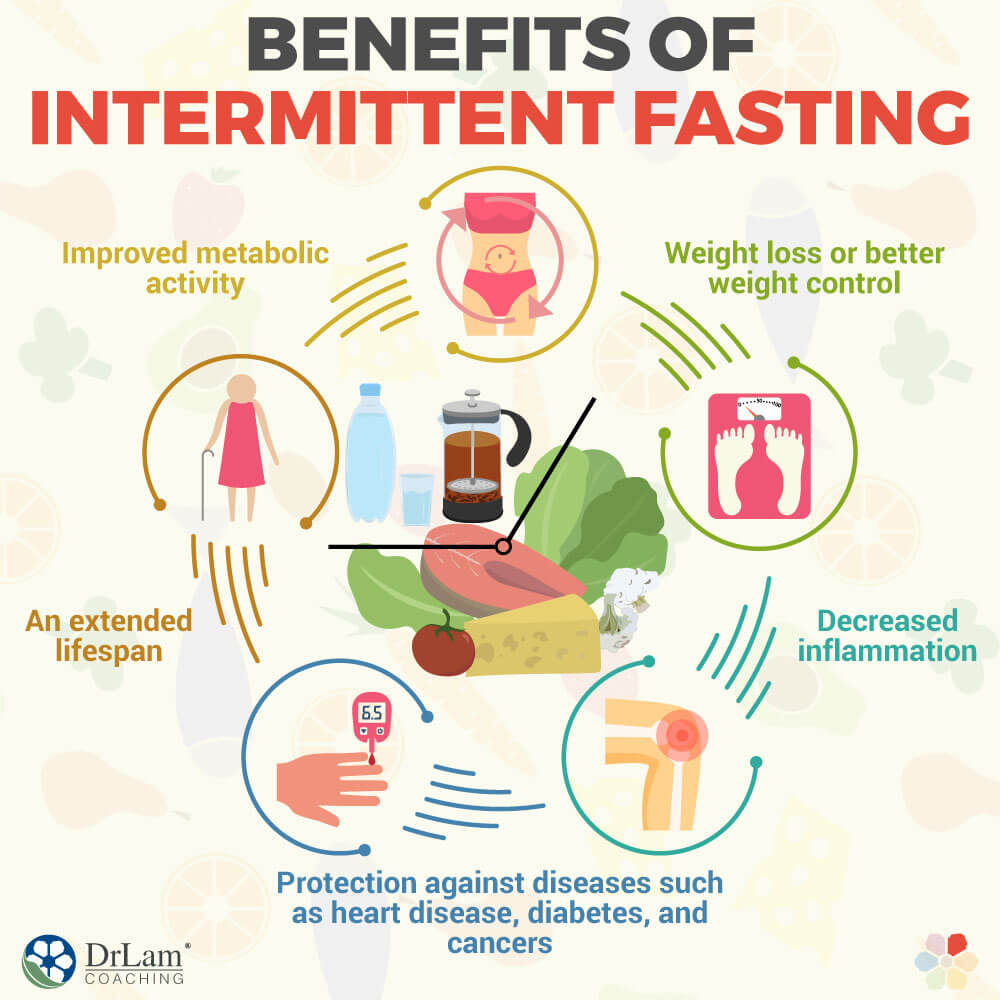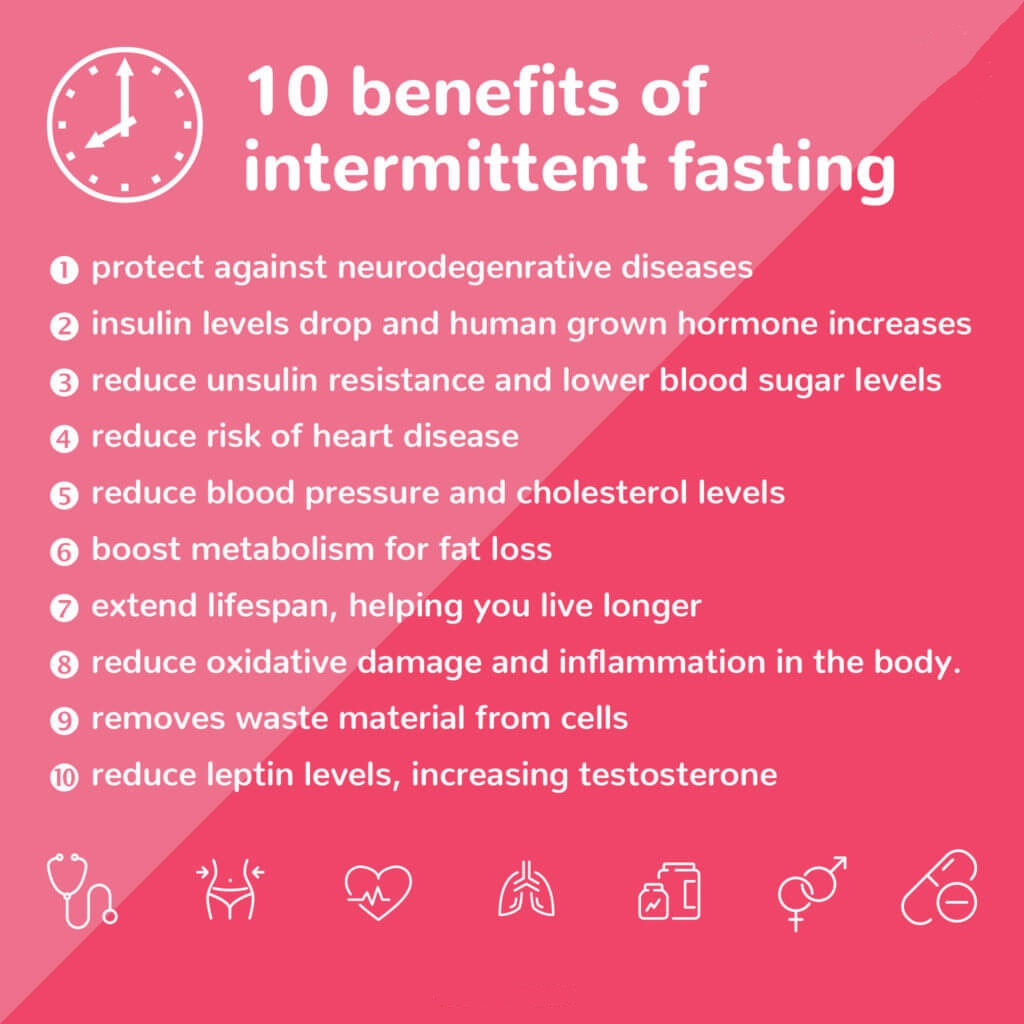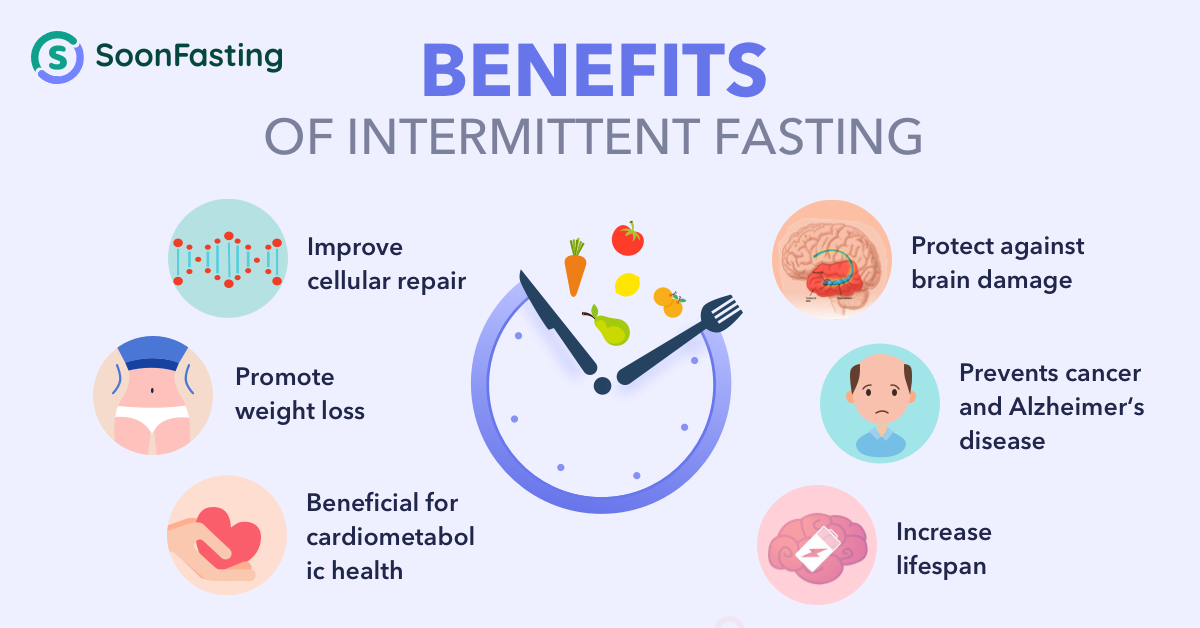Exploring the Health Benefits of Intermittent Fasting Explained

Diving into the realm of intermittent fasting and its health benefits, this introduction sets the stage for an enlightening journey. From understanding the concept to unraveling its impact on various aspects of well-being, this discussion aims to provide a holistic view of intermittent fasting with a blend of informative insights and intriguing revelations.
As we delve deeper, we will uncover the intricate details that shed light on the remarkable advantages of embracing intermittent fasting as a lifestyle choice.
Table of Contents
ToggleIntroduction to Intermittent Fasting

Intermittent fasting is an eating pattern that alternates between periods of fasting and eating. It does not specify which foods to eat but rather when to eat them. This approach focuses on when you should eat rather than what you should eat.
Different Types of Intermittent Fasting Schedules
- 16/8 Method: Involves fasting for 16 hours and eating within an 8-hour window each day.
- 5:2 Diet: Involves eating normally for 5 days of the week and restricting calorie intake to 500-600 calories on the other 2 days.
- Alternate-Day Fasting: Involves fasting every other day, with some variations allowing for limited calorie intake on fasting days.
Reasons Why People Choose to Practice Intermittent Fasting
- Weight Loss: Intermittent fasting can help with weight loss by reducing calorie intake and boosting metabolism.
- Improved Metabolic Health: It may improve blood sugar levels, insulin sensitivity, and reduce inflammation.
- Simplicity and Convenience: Some find it easier to follow than traditional calorie restriction diets.
- Potential Longevity Benefits: Some studies suggest that intermittent fasting may promote longevity and cellular health.
Health Benefits of Intermittent Fasting

Intermittent fasting has gained popularity not only for its weight loss benefits but also for its numerous health advantages. Let's explore some of the key health benefits associated with intermittent fasting.
Improved Metabolic Health
Intermittent fasting can lead to improved metabolic health by regulating blood sugar levels and increasing insulin sensitivity. When you fast, your body switches from using glucose as its primary source of energy to burning fat, which can help reduce inflammation and improve overall metabolic function.
Impact on Insulin Sensitivity
One of the significant benefits of intermittent fasting is its positive impact on insulin sensitivity. By giving your body regular periods of rest from digesting food, intermittent fasting can help lower insulin levels and increase the body's sensitivity to insulin.
This can be particularly beneficial for individuals at risk of developing type 2 diabetes or those looking to manage their blood sugar levels more effectively.
Weight Loss and Intermittent Fasting
Intermittent fasting is a popular approach for weight loss that involves cycling between periods of eating and fasting. This method can be effective in promoting weight loss due to various mechanisms that help the body burn fat more efficiently.Intermittent fasting helps in weight loss by:
Regulating Hormones for Fat Burning
Intermittent fasting can regulate hormone levels in the body, such as insulin and norepinephrine, which play a key role in fat metabolism. When fasting, insulin levels drop, allowing the body to access stored fat for energy. Additionally, norepinephrine levels increase, boosting the body's metabolic rate and promoting fat burning.
Increasing Metabolic Rate
Intermittent fasting can increase the body's metabolic rate, leading to more calories burned throughout the day. This can create a calorie deficit, which is essential for weight loss. Fasting periods also encourage the body to use stored fat as fuel, further aiding in weight loss.
Reducing Caloric Intake
By restricting the eating window, intermittent fasting can naturally lead to a reduction in overall caloric intake. This can help individuals consume fewer calories, which is crucial for weight loss. By eating fewer meals and snacks, individuals are less likely to overeat or consume excess calories.Studies have shown that intermittent fasting can be an effective strategy for weight loss.
Research has demonstrated that this approach can lead to significant reductions in body weight, body fat percentage, and waist circumference. Many individuals have successfully lost weight and improved their overall health by incorporating intermittent fasting into their lifestyle
Effects of Intermittent Fasting on Cellular Health
Intermittent fasting has profound effects on cellular health, influencing various processes within our cells to promote overall well-being.
Autophagy and Cellular Repair
Intermittent fasting triggers a process called autophagy, where cells remove damaged components and recycle them for energy. This cellular cleaning mechanism helps in repairing and rejuvenating cells, leading to improved overall cellular health.
Promotion of Longevity
By enhancing cellular repair mechanisms through autophagy, intermittent fasting has been linked to promoting longevity. When cells are able to efficiently repair and regenerate, it can potentially slow down the aging process and contribute to a longer, healthier life.
Reduced Inflammation
Intermittent fasting has been shown to reduce inflammation at the cellular level. Chronic inflammation is associated with various diseases, including heart disease, diabetes, and cancer. By reducing inflammation through intermittent fasting, overall cellular health is improved, lowering the risk of developing these conditions.
Cognitive Benefits of Intermittent Fasting

Intermittent fasting not only affects the body but also has significant impacts on cognitive function and brain health. Researchers have been exploring how this eating pattern can enhance brain function and focus.
Improved Brain Function and Focus
Intermittent fasting has been shown to support cognitive function by promoting the production of brain-derived neurotrophic factor (BDNF), a protein that helps with brain cell growth and connectivity. This increase in BDNF levels may contribute to improved focus, concentration, and overall brain function.
Impact on Neuroplasticity
Neuroplasticity refers to the brain's ability to adapt and reorganize itself by forming new neural connections. Intermittent fasting has been linked to enhanced neuroplasticity, which can lead to improved learning and memory retention. By stimulating the growth of new neurons and supporting synaptic plasticity, intermittent fasting may help maintain optimal brain health.
Research Supporting Cognitive Benefits
Several studies have highlighted the cognitive benefits of intermittent fasting. A study published in the Journal of Molecular Neuroscience found that intermittent fasting can enhance cognitive function and protect against neurodegenerative diseases. Another study published in the Journal of Neurochemistry suggested that intermittent fasting may improve memory and learning abilities by promoting neurogenesis.Overall, intermittent fasting shows promise in optimizing cognitive function, enhancing focus, and supporting brain health through various mechanisms such as increased BDNF levels and improved neuroplasticity.
Intermittent Fasting and Heart Health
Intermittent fasting has shown to have positive effects on heart health, offering various benefits that can contribute to a healthier cardiovascular system.
Impact on Blood Pressure and Cholesterol Levels
Intermittent fasting has been linked to improvements in blood pressure and cholesterol levels. Studies suggest that fasting periods can help lower blood pressure and reduce levels of LDL cholesterol, also known as the "bad" cholesterol. This can ultimately lower the risk of heart disease and improve overall heart health.
Relationship with Cardiovascular Health
By promoting weight loss, reducing inflammation, and improving blood sugar levels, intermittent fasting can have a positive impact on cardiovascular health. The practice of fasting intermittently can help regulate blood pressure, reduce oxidative stress, and enhance heart function. These factors combined contribute to a reduced risk of heart disease and other cardiovascular conditions.
Closure
In conclusion, the discourse on the health benefits of intermittent fasting elucidates its profound effects on the body and mind. From metabolic enhancements to cognitive boosts, intermittent fasting emerges as a potent tool for optimizing health and vitality. As we bid farewell to this exploration, may the knowledge gained inspire you to embark on a journey towards holistic well-being through the practice of intermittent fasting.
FAQ Resource
How does intermittent fasting impact metabolic health?
Intermittent fasting can enhance metabolic health by regulating insulin levels and promoting fat burning, leading to improved energy utilization.
Is intermittent fasting suitable for everyone?
Intermittent fasting may not be suitable for individuals with certain medical conditions or those who are pregnant or breastfeeding. Consulting a healthcare provider is recommended before starting.
Can intermittent fasting improve cognitive function?
Studies suggest that intermittent fasting can enhance brain function, boost focus, and support neuroplasticity, contributing to cognitive benefits.
Recent Posts
- Tips to Sell Your House Fast: A Comprehensive Guide
 by Raimu Su Exterior Fiding
by Raimu Su Exterior Fiding - Unlocking the Power of Real Brokerage: A Comprehensive Guide
 by aling aling
by aling aling - Crafting Success: Vacation Property Management Guide
 by aling aling
by aling aling

